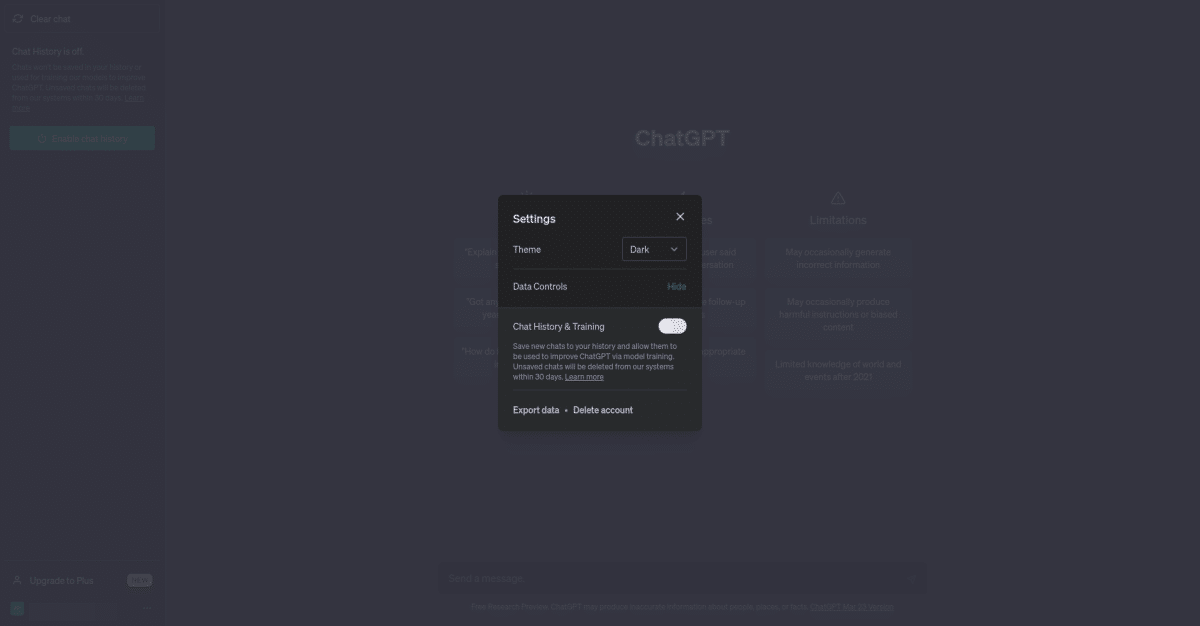
A while ago we didn't talk about OpenAI and his goose that lays the golden eggs, ChatGPT. And it is that the latest news has had little to do with its operation and much to do with the possibility of blocking the famous chatbot. The reason, that privacy cannot be guaranteed, that the company can know everything about us because we tell them anything. This week, the company seems to have taken a step to avoid problems with some countries.
This is how OpenAI made it known in an article published on April 25, less than 24 hours ago. Its headline is "New ways to manage your data in ChatGPT", and the content is basically the explanation of a new option with which we can make the chat history deactivate. We can access it by selecting our user (bottom left), clicking on “Settings”, in “Data controls” clicking on “Show” and deactivating the switch.
OpenAI may have problems if it does not guarantee privacy
The explanatory text under that switch says that [if checked) new chats are saved in our history and we allow them to be used to train ChatGPT. Unsaved chats will be removed from OpenAI systems in 30 days. Even so, the chats will be saved during that month, but, they say, to review them only when necessary to verify that there is no abuse.
Another protection for users is that, when we use ChatGPT via a program or service that uses your Business APIs, user data will not be used to train the chatbot by default. This will come in the next few months.
The last thing they told us about in this note is the possibility of exporting our data of use in ChatGPT and understand what information ChatGPT stores. If we decide to export them, we will receive the information in our registration email. The time for receiving that email will depend on factors that are not explained, but I have requested it and, after several minutes of waiting, I still have not received anything.
It may be for other reasons, but it seems to me that this movement is a response to the blockade threats dropped by countries like Italy, Germany and Spain, which was looking askance at what our European neighbors were doing.
One tip: manual history management
I would advise otherwise. As a user who has been using the OpenAI chatbot to ask a lot of questions, even to talk about song lyrics or movie meanings, my history was filled with countless conversations. The fact is that you can ask him "What is the name of the singer of Ad Infinitum" and that is saved as a chat, even if it was only a question and an answer to save time. I recently gave delete all history and I've started it from scratch.
One option is not to save anything, but if we've covered something we're interested in, we can never review that again. Therefore, a good idea, or it seems to me, is to do exactly what I do now: I start the normal chats, and when my doubt is cleared or I get what I want, I delete it manually. And I don't do it just for privacy, but to have everything more organized. Of course, if I feel like asking something weird or medical (although it's best to go to a professional, it's something we already did with Google), I delete that conversation for privacy.
Whatever use is made, this possibility already exists, and now it is up to the countries to verify if what they say is true and is sufficient.